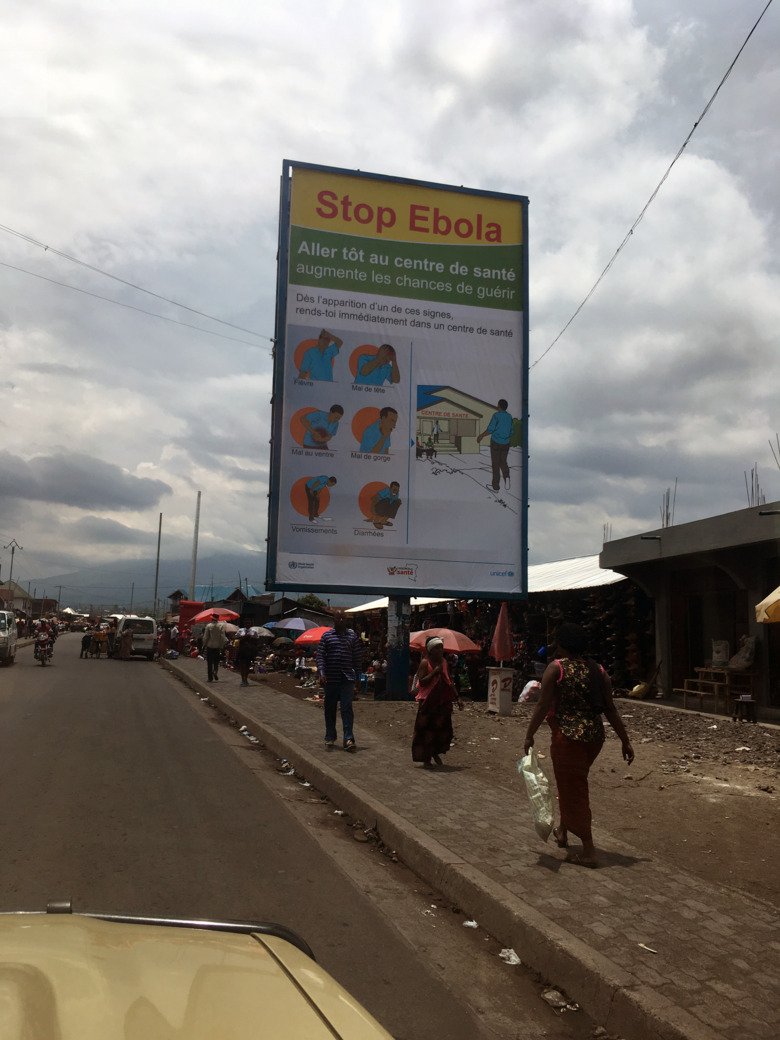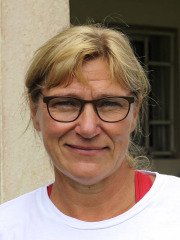To contribute in an ongoing health crisis – from KI to the Ebola outbreak in Uganda

Anneli Eriksson, research specialist at the Centre for Research on Health Care in Disasters and a specialised nurse with extensive field experience, was on her way to Spain when she turned on her heel and instead headed straight to Uganda, to work in a coordinator role for Médecins sans frontières (MSF) Sweden in their efforts to assist in the current and ongoing Ebola outbreak in the country.

The quick turn around was made possible, among other things, thanks to how the newly established Centre for Health Crises at KI has set up its way of working. The centre is working on increasing and strengthening such ties, to make expertise from KI available to assist operational agencies directly in a health crisis.
Urgent departure to Uganda following Ebola outbreak
The mission to Uganda is by no means Anneli’s first time working in a health crisis. On the contrary, she has worked with MSF since the mid-1990s in several different types of disasters, as well as conflict zones. At the same time, she has pursued a research and teaching career at KI, which includes a PhD in 2020. Her research focuses on ways to predict and measure severity and needs in disasters. Among other things, Anneli currently works in a multi-disciplinary research project, along with, among others peace and conflict researchers at Uppsala university. The project is called Societies at Risk and looks at the wide spectra of impact that armed conflict has on a society.
Last week, Ugandan health authorities declared an outbreak of Ebola in the Mubende district, following a confirmed case of the relatively rare Sudan strain of the virus, which is not treatable with any of the currently used methods. This is the first time Uganda has detected the Sudan-strain of the virus in ten years, and so far, the outbreak is relatively limited, but the severity of the illness and its potential spread no less merits urgent actions. MSF already has ongoing projects in Uganda and Anneli’s role, as one of the first on the ground, is to assist staff already working in the country, following these recent developments. Anneli has previously worked with treatment and management of Ebola outbreaks, including in Liberia, and Congo DRC, as well as setting up trainings in Sweden for staff deployed to work with Ebola
Not only was Anneli’s quick departure to Uganda made possible by her colleagues at the Centre for Research on Health Care in Disasters being used to adapting and filling in each other’s roles, but also because of the centre’s enduring ties to MSF.
Over the years the Centre for Research on Health Care in Disasters and MSF have collaborated on a professional education course called Health Assistance in Humanitarian Crisis, and several members of staff at the centre also work with MSF.
Continue to build and strengthen collaborations
The Centre for Health Crises intends to continue to build on, and strengthen, connections such as this, to allow for further collaborations between KI and civil society organisations and governmental agencies. To develop the working relationship, a joint letter of intent is under development between the two centres and MSF.
Johan von Schreeb, director of the Centre for Health Crises, explains:
- At the Centre for Health Crises we work with both a long and short-term perspective, which is vital when you want to address health crises. On the one hand, we work with long-term initiatives such as plans for a research school and network mapping. At the same time, we also think it is vital to make the expertise and skillset that is available at KI, notably in the form of our researchers and other staff, available to work in ongoing health crises, via secondments to organisations or government authorities such as MSF. Anneli’s work with MSF in Uganda is a perfect example of this. In addition to making essential contributions on ground, she will bring back vital experience that feeds into the research and teaching activities at KI.
Mutually beneficial
The arrangement has so far proven just as positive for the collaborating organisation, in this case MSF.
- It is beneficial for us to work with the Centre for Health Crises and thus get access to not just the latest research and education, but also experienced people with the expertise needed in our work, says Frida Lagerholm, head of communication at MSF Sweden.
True to KI’s vision of a better health for all, the Centre for Health Crises will continue to focus on both long-term initiatives in research and education, and in other ways building the next generation of health crises experts. Concurrently, it will also develop collaborations such as the one with MSF, to allow for short-term secondments that brings people like Anneli to where their knowledge and skillset is needed the most, when it is needed the most.
